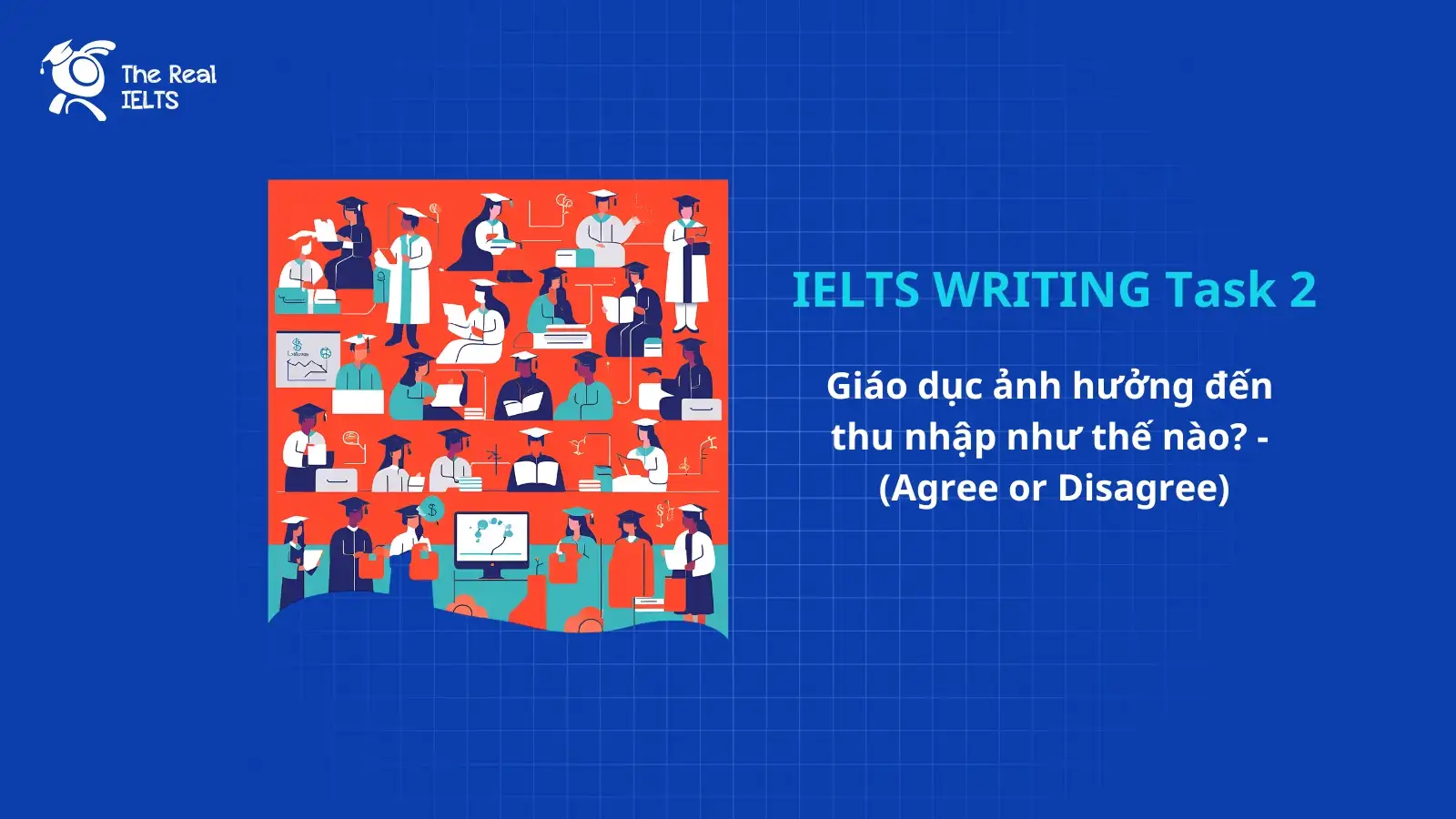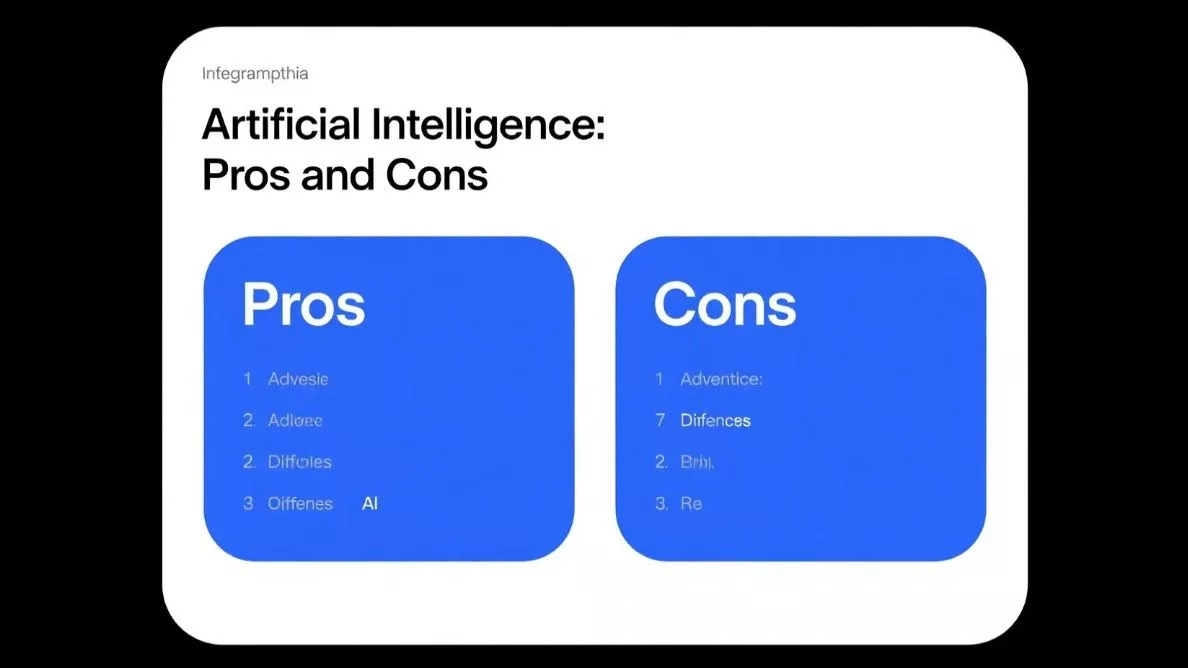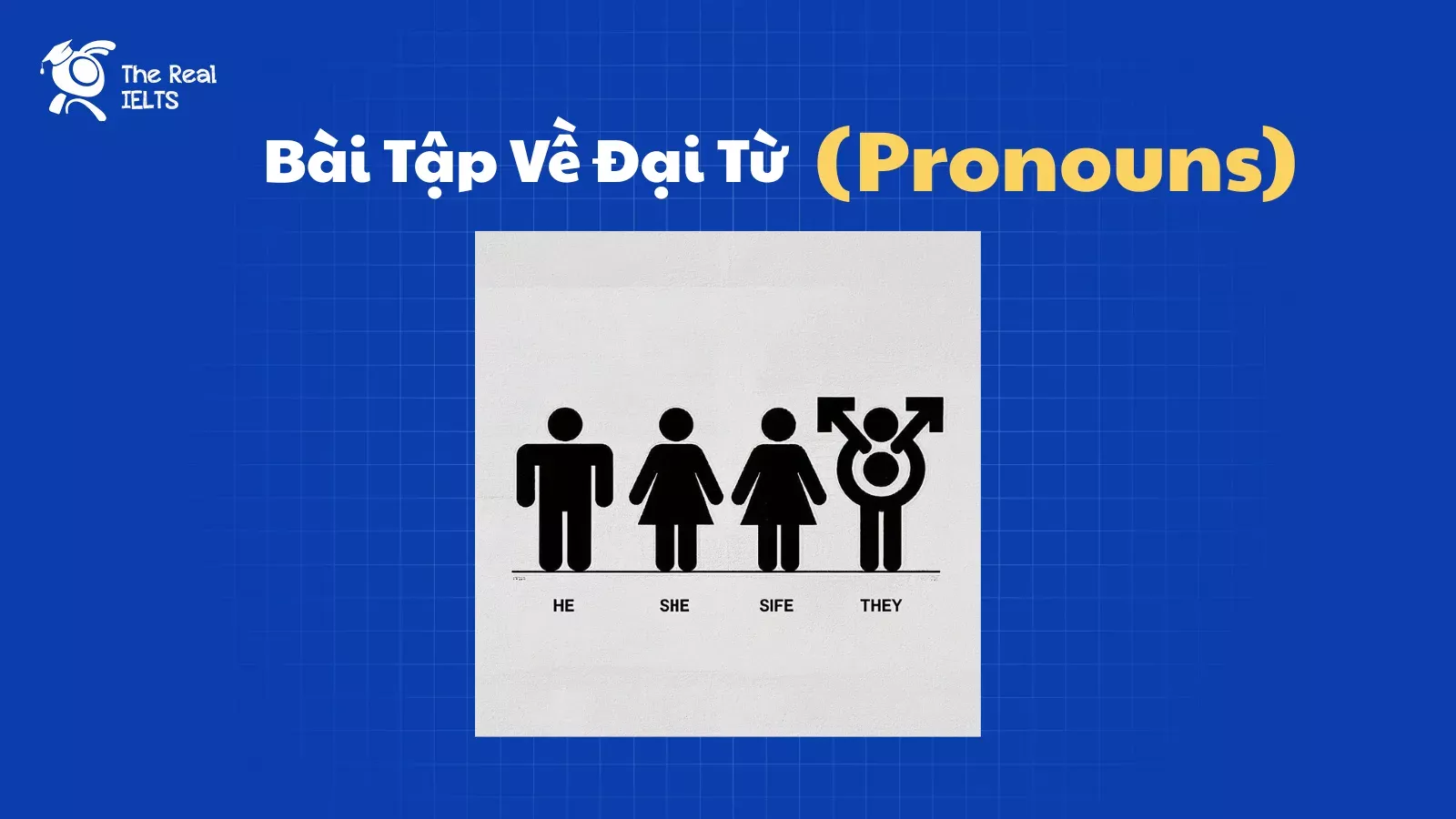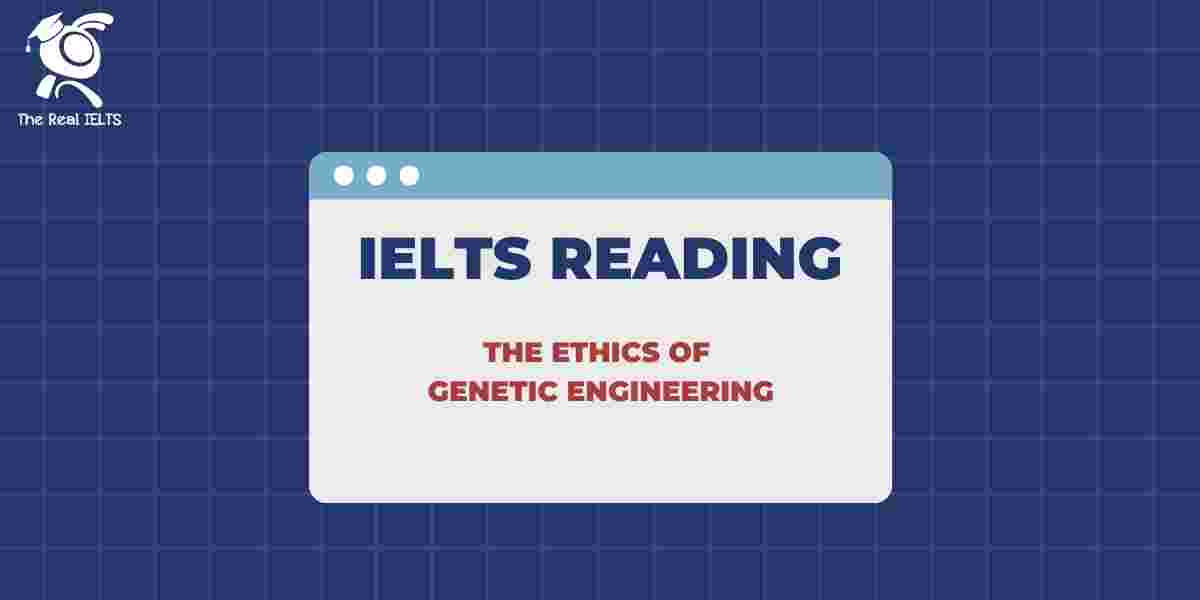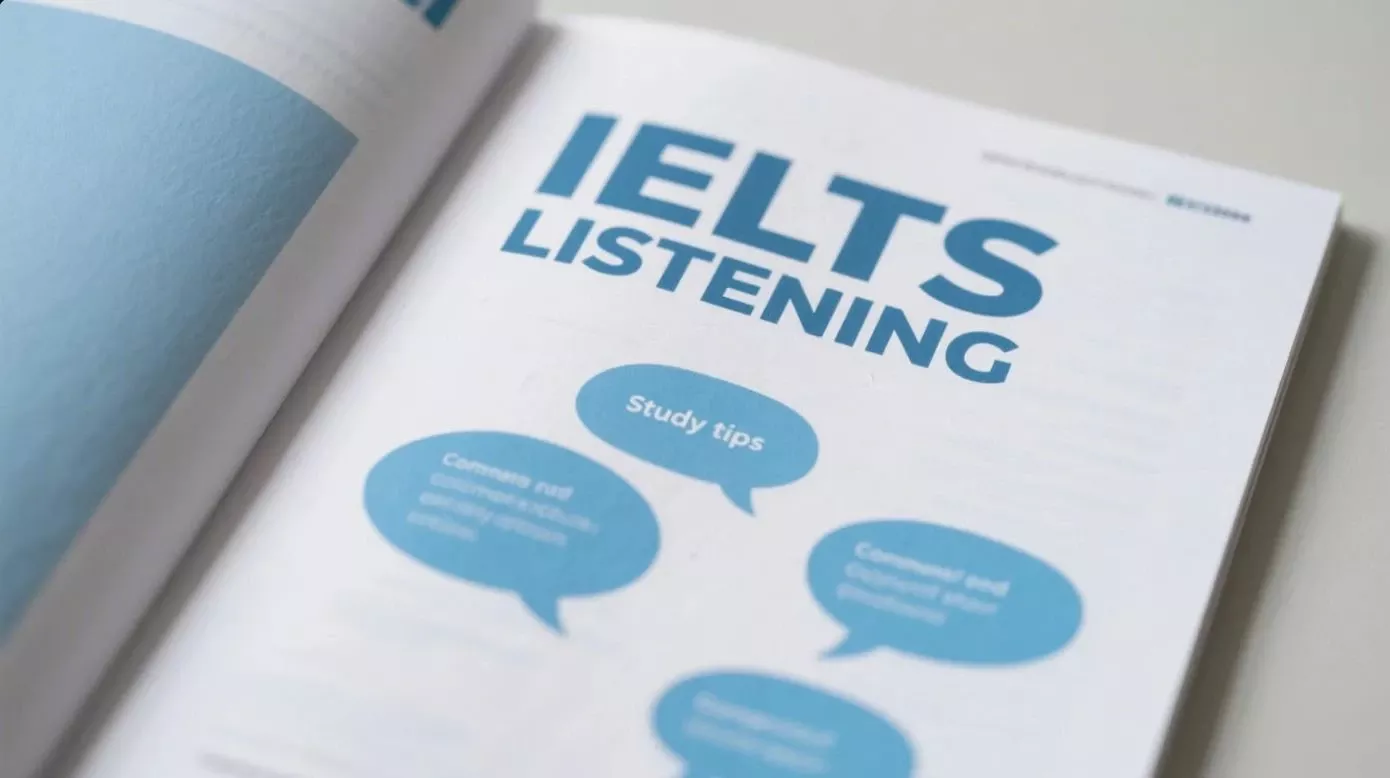Trong bài IELTS Writing Task 2 dạng Agree or Disagree, thí sinh cần lập luận chặt chẽ để chứng minh quan điểm của mình. Giáo dục có vai trò quan trọng trong việc quyết định mức thu nhập của mỗi cá nhân. Nhiều nghiên cứu cho thấy người có trình độ học vấn cao thường có thu nhập tốt hơn.
Đề bài IELTS Writing Task 2: Giáo dục ảnh hưởng đến thu nhập như thế nào? – Agree or Disagree
“Higher education leads to higher income levels.” To what extent do you agree or disagree?
Ví dụ 1
Higher education is often associated with better career opportunities and increased income levels. However, the extent to which higher education directly leads to higher earnings depends on various factors, including the field of study, job market demand, and individual skills. This essay will argue that while higher education generally contributes to higher income levels, it is not the sole determining factor.
The Positive Impact of Higher Education on Income
One of the main arguments supporting the idea that higher education leads to higher income levels is that university degrees provide individuals with specialized knowledge and skills, making them more competitive in the job market. Many high-paying professions, such as medicine, law, and engineering, require formal education and qualifications. Without a degree, individuals may find it difficult to enter these lucrative fields.
Moreover, statistics consistently show a positive correlation between education and earnings. For example, in many countries, university graduates tend to earn significantly more than those with only a high school diploma. Employers often value higher education because it demonstrates a candidate’s ability to commit to long-term learning and problem-solving, which are essential skills in professional environments.
Limitations and Counterarguments
Despite the advantages of higher education, it does not guarantee a high income. One key limitation is the field of study. Certain degrees, such as those in science, technology, engineering, and mathematics (STEM), often lead to higher salaries, whereas degrees in arts or humanities may not provide the same financial returns. Thus, simply obtaining a degree is not enough; choosing a field with strong job prospects is crucial.
Additionally, the job market plays a significant role in determining income levels. In some cases, graduates may struggle to find well-paying jobs due to economic downturns, oversaturation in certain fields, or a lack of practical experience. Many successful entrepreneurs and skilled workers without formal higher education have achieved substantial financial success through vocational training, apprenticeships, or self-employment.
Conclusion
In conclusion, while higher education often leads to higher income levels, it is not the only factor influencing financial success. The field of study, job market conditions, and individual skills also play crucial roles. Therefore, while pursuing higher education can be a valuable investment, individuals should carefully consider their career paths and seek additional skills beyond academic qualifications to maximize their earning potential.
Ví dụ 2
Higher education has long been associated with increased earning potential. While I acknowledge that obtaining a degree often opens doors to better-paying jobs, I believe this correlation is not absolute, as other factors such as skills, experience, and market demand play significant roles in determining an individual’s income level.
On the one hand, higher education provides individuals with specialized knowledge and qualifications that enhance their employability. Many high-paying professions, such as medicine, law, and engineering, require formal degrees and extensive academic training. Additionally, university graduates tend to develop critical thinking, problem-solving, and communication skills that are highly valued in the job market, giving them an edge over those without formal education. Numerous studies have shown that, on average, degree holders earn significantly more than those without higher education.
On the other hand, having a degree does not automatically guarantee a high income. In many cases, the field of study plays a crucial role—graduates from STEM (Science, Technology, Engineering, and Mathematics) fields often earn more than those with degrees in the arts or humanities. Moreover, practical skills, work experience, and networking can sometimes outweigh formal qualifications. Many successful entrepreneurs, skilled tradespeople, and self-made professionals have achieved financial success without traditional higher education. For instance, tech moguls like Steve Jobs and Mark Zuckerberg built billion-dollar companies despite not completing their university degrees.
In conclusion, while higher education generally improves earning potential, it is not the sole determinant of financial success. Practical skills, industry demand, and entrepreneurial acumen can be equally, if not more, influential in determining income levels. Therefore, while I agree that higher education can lead to higher income, I do not believe it is the only path to financial prosperity.
Estimated Band Score: 8.0+
- Task Response: Well-developed argument with a balanced view.
- Coherence & Cohesion: Logical flow with clear linking words.
- Lexical Resource: Strong vocabulary with academic tone.
- Grammatical Range & Accuracy: Few to no errors, varied sentence structures.
Ví dụ 3
The statement that “Higher education leads to higher income levels” is generally supported by data and research, but the relationship is complex and influenced by multiple factors.
Reasons to Agree:
- Statistical Evidence: Studies consistently show that individuals with higher education degrees tend to earn more over their lifetime than those with lower levels of education. For example, bachelor’s degree holders often earn significantly more than high school graduates.
- Skill Development: Higher education provides specialized knowledge and skills, making individuals more competitive in the job market.
- Job Market Demand: Many high-paying jobs require advanced degrees, such as medicine, law, engineering, and finance.
- Networking Opportunities: Universities offer connections that can lead to better job placements and career growth.
Reasons to Disagree:
- Field of Study Matters: Not all degrees lead to high salaries. For example, STEM and business degrees generally offer higher income potential than some liberal arts or humanities degrees.
- Work Experience & Skills: Practical experience, skills, and networking can sometimes outweigh a degree. Many successful entrepreneurs and professionals have achieved wealth without formal higher education.
- Rising Student Debt: The cost of education is high, and student loans can reduce financial gains, especially if salaries do not justify the expense.
- Changing Job Market: Some high-income careers, such as those in technology and trades (e.g., coding, plumbing, electrical work), do not necessarily require a traditional university degree.
Conclusion:
While higher education generally correlates with higher income levels, it is not a universal rule. Success depends on factors like the field of study, skills, experience, and market demand. Thus, while I mostly agree with the statement, I acknowledge that alternative career paths can also lead to financial success.
Ví dụ 4
The idea that “higher education leads to higher income levels” is widely supported by research, but its validity depends on several factors.
Reasons to Agree
- Statistical Evidence: Numerous studies show that individuals with higher education (bachelor’s, master’s, or professional degrees) tend to earn more over their lifetime than those with only a high school diploma.
- Skill Development: Higher education often provides specialized skills and knowledge, increasing employability and earning potential.
- Job Market Preferences: Many high-paying jobs require advanced degrees, such as law, medicine, and engineering.
- Networking and Opportunities: Universities provide connections to high-income career paths through alumni networks and industry partnerships.
Reasons to Disagree
- Rising Tuition and Debt: The cost of higher education can be significant, and student loan debt may offset financial gains.
- Job Market Realities: A degree does not always guarantee a high-paying job, especially in oversaturated fields.
- Success Without a Degree: Many entrepreneurs and professionals achieve high income levels through vocational training, apprenticeships, or self-employment.
- The Role of Experience: In some industries, hands-on experience and skills matter more than formal education for financial success.
Conclusion
While higher education generally correlates with higher income, it is not the only path to financial success. The impact depends on the field of study, job market conditions, and individual career choices. Alternative routes, such as entrepreneurship and vocational training, can also lead to high earnings.
Ví dụ 5
I partially agree with the statement that “Higher education leads to higher income levels,” but with important caveats. While statistics consistently show a correlation between higher education and higher earnings, the relationship is not absolute. Several factors influence income levels beyond education alone, such as industry, experience, skills, and economic conditions.
Supporting Arguments:
- Statistical Correlation – Data from organizations like the OECD and U.S. Bureau of Labor Statistics indicate that individuals with higher education degrees tend to earn more than those with only a high school diploma.
- Skill Development – Higher education often equips individuals with specialized knowledge and skills, making them more competitive in high-paying job markets.
- Access to Opportunities – A degree can serve as a gateway to careers that require formal qualifications, such as medicine, law, and engineering, which generally offer higher salaries.
- Networking and Credentials – Universities provide valuable networking opportunities that can lead to well-paying jobs and career advancements.
Counterarguments:
- Field of Study Matters – Not all degrees lead to high earnings. STEM, business, and healthcare degrees tend to yield higher salaries, while some humanities and arts degrees may not.
- Experience and Skills Can Outweigh Education – Many high-paying careers (e.g., entrepreneurship, tech industry) prioritize practical skills over formal education.
- Rising Student Debt – The financial burden of student loans can offset the benefits of higher earnings, particularly if graduates struggle to find high-paying jobs.
- Economic and Job Market Conditions – Higher education does not guarantee employment or high wages if job markets are saturated or economic downturns affect hiring.
Conclusion:
While higher education generally improves earning potential, it is not a universal guarantee of higher income. Factors such as field of study, industry demand, work experience, and skills play crucial roles in determining financial success. Therefore, while I agree with the statement to an extent, it is important to recognize that education is just one of many factors influencing income levels.
Ví dụ 6
The statement “Higher education leads to higher income levels” is generally true, but with important caveats. While higher education often correlates with increased earning potential, several factors influence the extent of this relationship.
Reasons to Agree
- Higher Earning Potential: College graduates, on average, earn more than those with only a high school diploma. According to data from many countries, professionals with a bachelor’s or advanced degree tend to have higher salaries than those with less education.
- Better Job Opportunities: Many high-paying careers, such as medicine, engineering, and law, require higher education. Degrees often open doors to specialized fields that offer financial stability.
- Skill Development: Higher education provides valuable skills, critical thinking, and networking opportunities, which can lead to career advancement and higher wages over time.
Reasons to Disagree
- Not All Degrees Are Equal: The field of study matters. STEM and business degrees often lead to higher salaries, while some humanities and arts degrees may not yield the same financial return.
- Experience and Skills Matter: Some individuals without a degree earn more through entrepreneurship, trades, or self-taught skills in fields like technology. Certifications, apprenticeships, and vocational training can sometimes be just as, if not more, valuable.
- Rising Student Debt: The cost of higher education can be a burden. If graduates struggle with student loans and low-paying jobs, the financial benefits may take years to materialize.
Conclusion
While higher education can lead to higher income levels, it is not a guarantee. Factors such as the chosen field, demand for certain skills, personal abilities, and alternative career paths all play a role. Therefore, while education is valuable, it should be pursued strategically to maximize financial benefits.
Ví dụ 7
It is often argued that higher education leads to higher income levels, as graduates typically have better job opportunities and earning potential. While this is generally true, there are exceptions, and other factors such as skills, experience, and industry demand also play a crucial role.
On the one hand, higher education provides specialized knowledge and qualifications that increase employability. Many high-paying professions, such as medicine, law, and engineering, require advanced degrees. Additionally, university graduates often have better networking opportunities, internships, and career guidance, which can lead to higher salaries. Statistics also suggest that, on average, individuals with a university degree earn more than those without one.
However, higher education does not guarantee financial success. Some degree holders struggle with underemployment or student debt, while certain trades and vocational careers, such as plumbing and electrical work, offer high salaries without requiring a university degree. Furthermore, entrepreneurship and self-employment allow individuals to achieve high income levels based on skills, innovation, and market demand, regardless of formal education.
In conclusion, while higher education generally leads to higher income, it is not the only determining factor. Skills, experience, industry demand, and career choices also significantly impact earning potential. Therefore, while pursuing higher education can be beneficial, individuals should also consider alternative paths to financial success.
Ví dụ 8
It is often argued that pursuing higher education results in greater earning potential. While a university degree can certainly enhance career prospects, other factors such as skills, experience, and industry demand also play crucial roles in determining income levels. This essay will examine both perspectives before concluding that higher education is beneficial but not the sole determinant of financial success.
On the one hand, obtaining a higher education degree can significantly improve job prospects and earning potential. Many high-paying professions, such as medicine, engineering, and law, require advanced qualifications. Employers often prefer candidates with specialized knowledge and expertise, which can only be acquired through formal education. Additionally, university graduates tend to have better access to professional networks, internships, and job opportunities, further increasing their chances of securing well-paid positions.
On the other hand, higher education is not the only path to financial success. Many individuals without university degrees achieve high income levels through entrepreneurship, vocational training, or self-taught skills. For example, successful business leaders like Steve Jobs and Elon Musk either dropped out or pursued alternative education paths but still built multi-billion-dollar companies. Furthermore, some industries, such as technology and creative arts, value practical skills and innovation more than formal degrees, allowing talented individuals to succeed without traditional higher education.
In conclusion, while higher education generally leads to better job prospects and higher income, it is not the only factor determining financial success. Skills, experience, industry trends, and individual ambition also play critical roles. Therefore, while university education can be advantageous, it is not the sole requirement for achieving a high income.
Ví dụ 9
It is often argued that obtaining higher education directly results in higher income levels. While there is substantial evidence to support this claim, other factors such as experience, skills, and market demand also play a crucial role in determining an individual’s earnings. This essay will discuss both perspectives before concluding that higher education is generally beneficial but not the sole determinant of financial success.
On the one hand, higher education provides individuals with specialized knowledge and skills that increase their employability and earning potential. University graduates often secure well-paying jobs in professional fields such as medicine, engineering, and law, where academic qualifications are mandatory. Moreover, data suggests that individuals with a degree tend to have higher lifetime earnings than those without formal education. This is because many high-paying industries require advanced knowledge and credentials, which are primarily obtained through tertiary education.
On the other hand, possessing a university degree does not always guarantee a higher income. Many successful entrepreneurs and self-made businesspeople, such as Steve Jobs and Mark Zuckerberg, achieved financial success without completing higher education. Additionally, technical skills and vocational training can lead to lucrative careers in trades like plumbing, electrical work, and software development, often surpassing the earnings of degree holders. Furthermore, the job market is becoming increasingly competitive, and some graduates struggle to find employment, leading to underemployment or low-paying jobs.
In conclusion, while higher education generally increases the likelihood of earning a higher income, it is not the only factor contributing to financial success. Practical skills, experience, and market trends also significantly impact an individual’s earning potential. Therefore, while obtaining a degree is advantageous, it should not be seen as the sole pathway to financial prosperity.


